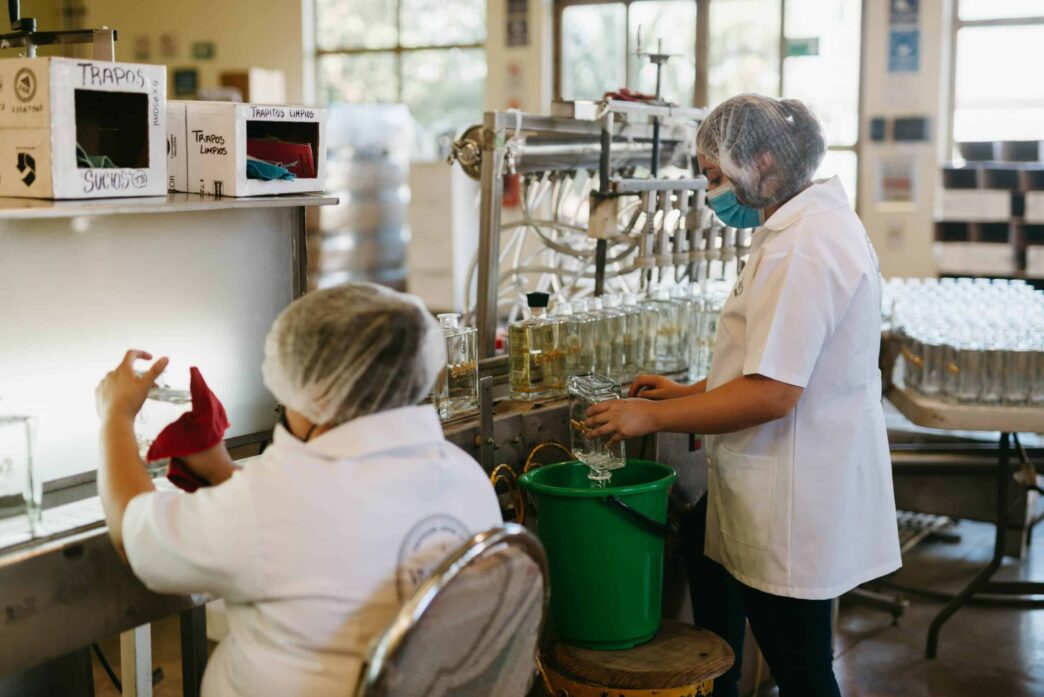Industrial hygiene, often called occupational hygiene, is a multidisciplinary field focused on preventing and controlling environmental factors that could adversely affect the health and well-being of workers.
Industrial hygiene aims to ensure a safe and healthy work environment for all employees, from corporate offices to construction sites and industrial facilities.
Let’s explore why a career in this field could be a game-changing decision.
Understanding the Industrial Hygiene Field
Industrial hygiene is rooted in public health and science, drawing from biology, chemistry, engineering, and epidemiology. The practice involves anticipating, recognizing, evaluating, and controlling health hazards in the working environment. This field is critical in protecting the health and safety of workers and their communities.
As industrial hygiene professionals, the goal is to ensure the workplace is not just in compliance with health and safety regulations but exceeds them increating a proactive, protective environment.
The Rising Demand for Industrial Hygiene Professionals
According to the U.S. Bureau of Labor Statistics, employment of health and safety professionals, including industrial hygienists, is projected to grow faster than the average for all occupations through 2029.
Factors like increasing public awareness of health and environmental impacts, evolving regulations, and the industry’s commitment to improving worker safety and health are driving the demand. Furthermore, as industries evolve and new hazards emerge, the need for knowledgeable, well-trained industrial hygiene professionals will continue to grow.
Acquiring the necessary knowledge and expertise in this rapidly growing and highly dynamic field can be challenging. However, advancements in modern technology and the advent of digital learning platforms have revolutionized this process. One such development is the advent of an online MPH in Industrial Hygiene program designed to accommodate the unique needs of working professionals, allowing them to balance their educational pursuits with their professional commitments.
Skills Gained from an Industrial Hygiene Degree
An Industrial Hygiene degree equips you with a diverse skill set necessary for a successful career in this field. You’ll gain a strong understanding of toxicology, exposure assessment, risk analysis, and other scientific and technical aspects of industrial hygiene. Beyond technical skills, the program also emphasizes essential soft skills like communication, problem-solving, and critical thinking.
In particular, the ability to effectively interpret and communicate complex scientific data is a crucial skill for industrial hygienists. Clear and effective communication is key, whether presenting findings to a company’s management team or explaining safety protocols to employees.
The Impact of Industrial Hygiene on Worker Health and Safety
Industrial hygiene practices profoundly impact workplace health and safety. Identifying potential hazards, whether chemical, physical, biological, or ergonomic, industrial hygienists can implement appropriate controls to minimize exposure. This proactive approach significantly contributes to the overall well-being of workers and reduces the risk of work-related illnesses and injuries.
Moreover, industrial hygienists’ actions can improve worker morale and productivity. Workers who feel that their health and safety are prioritized will likely be more satisfied and engaged in their work. Therefore, the role of industrial hygiene extends beyond preventing disease and injury—it also contributes to a positive work culture and a more effective organization.
Career Opportunities with an Industrial Hygiene Degree
A degree in industrial hygiene offers a multitude of career opportunities in a variety of sectors. Graduates can find roles in industry, government, academia, and non-profit organizations. Potential positions include industrial hygienist, environmental health and safety manager, hazard control manager, occupational health specialist, and consultant.
Furthermore, the growing focus on workplace safety and the increasing regulations on health standards ensure that the demand for industrial hygiene professionals will continue to rise. Regardless of your path, a career in industrial hygiene allows you to make meaningful contributions to workplace health and safety.
Expected Salary Range for Industrial Hygiene Professionals
The salary of industrial hygiene professionals can vary widely based on factors like experience, location, sector, and level of education. However, this field offers competitive compensation. According to the Bureau of Labor Statistics, as of 2021, the median annual wage for occupational health and safety specialists, which includes industrial hygienists, was around $74,870.
Advanced roles or those requiring certification often have higher earning potential. For instance, a professional with a master’s degree may command a higher salary.
Industrial Hygiene Certifications and their Advantages
Professional certifications are another way for industrial hygiene professionals to stand out in their field. One of the most respected certifications is the Certified Industrial Hygienist (CIH), administered by the American Board of Industrial Hygiene. This certification requires a combination of education, experience, and examination.
A CIH certification demonstrates high competence, commitment, and professionalism to potential employers. Furthermore, it can increase career opportunities, job stability, and higher earning potential.
Real-world Impact: Success Stories of Industrial Hygienists
There are many stories of industrial hygienists making significant impacts in their workplaces. For instance, a hygienist working in a manufacturing plant might identify an overlooked source of noise exposure, leading to improved hearing protection measures for employees. Another might implement a new ventilation system that significantly reduces workers’ exposure to harmful airborne substances, resulting in better respiratory health throughout the company.
These stories exemplify how industrial hygienists can profoundly affect workers’ lives by identifying and mitigating workplace hazards. These professionals often act as the unsung heroes of the workplace, working tirelessly behind the scenes to ensure a safe and healthy work environment.
Making Your Decision: Is an Industrial Hygiene Degree Right for You?
Deciding to specialize in industrial hygiene is a serious commitment; it calls for a dedication to bettering workplace environments and safeguarding worker health. Those who possess a scientific curiosity, problem-solving skills, and a desire to make a meaningful impact on people’s lives will find this field a perfect match.
Remember, choosing a career is more than matching skills and interests – it’s also about aligning with your core values.
Conclusion
Specializing in industrial hygiene opens up a rewarding career that enhances employee health and safety. Despite its challenges, this field offers myriad benefits – various career paths, competitive remuneration, and the opportunity to make a real difference. A degree in industrial hygiene provides you with the expertise, knowledge, and qualifications needed to thrive in this expanding field.















